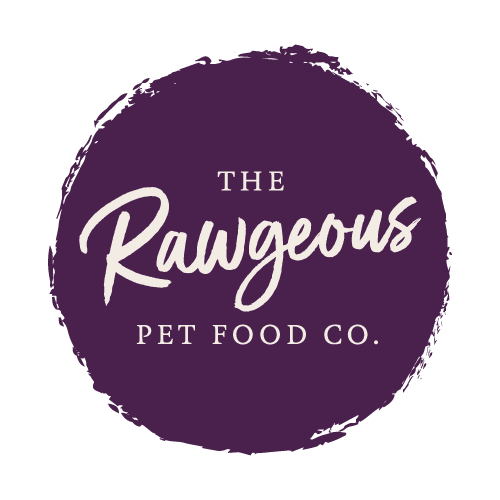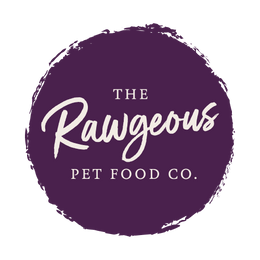A Balanced Diet
The Well-fed Wolf. A Balanced Diet
We have worked hard over the years creating safe and balanced recipes and recently partnered with the Pet Nutritionist Lawrence Deeley, to bring us to the next level and have all recipes FEDIAF balanced.
While selective breeding means many modern dogs don’t look like wolves, they still have a lot in common physiologically and anatomically with their wolf ancestors. However domesticated a dog might be it is still a subset of canis lupus and its dietary requirements are influenced by its genetic make-up.
Dogs’ mouths and teeth are similar to wolves, with teeth designed for grabbing and ripping prey (its canine teeth), for tearing meat from the bone (its premolars), and for crushing bones (its back teeth: the molars). Wolves’ and dogs’ jaws are hinged in a way that allows them to open wide to accommodate prey and they also have similar digestive systems designed to eat meat. Unlike humans, wolves and dogs don’t have salivary amylase, which is an enzyme that helps digest carbohydrates … but they do have pancreatic amylase, so they can digest some vegetable matter and starches.
So, if your dog is designed to eat like a wolf, what does that mean?
Overall adult wolves’ primary source of food is animal meat. Wolves will also eat some plant materials like grasses, seeds, sedges, acorns and berries or other fruit. Dogs, like wolves, are considered opportunistic carnivores, meaning they are primarily meat eaters but can supplement with food from other source including vegetation for essential vitamins and minerals.
How Much Food
Studies show wolves can eat about 7 lbs of food in a day … which seems like a lot! But after a really big feed they might not eat again for several days … so on average they eat about 1% of their body weight a day.
For your domestic dogs we recommend feeding around 2.5% of your dog’s body weight per day depending on his activity level. If you find your dog’s too thin, feed more, or if he’s gaining weight, cut back. Your dog is an individual and our feeding guide is just that: guidance. If you have any concerns about your dog’s appetite please contact us for advice.
Fasting
Fasting is natural to the dog’s physiology as well. Some dogs will naturally fast themselves, which can distress their owners. But it mimics what would happen in nature and it gives the digestive system a break. So don’t fret if your dog doesn’t eat for a day or two. Some experts even recommend fasting dogs one day a week, perhaps just giving them a recreational bone to gnaw on that day.
Food Temperature
When wolves kill prey, they get a warm meal. But scavenged food will usually be cold, and certainly their food temperature isn’t always the same.
Most raw fed dogs get their food straight from the refrigerator … every day. You might want to experiment with a room temperature meal for your dog once in a while to see if he likes that better.
Scavenging For Survival
Animals have a fundamental need to survive so when wild animals can’t find their primary source of food, they will turn to secondary food choices. When wolves eat grasses, seeds, acorns or fruit, this may be an instinctive way to supplement the diet nutritionally … or it could even be for medicinal purposes.
Wolves are also scavengers and when they need extra food to survive (rather than thrive), they’ll eat whatever they can find, including scavenging at garbage dumps. Domestic dogs are not usually underfed, but they still supplement their diets with extras and have the scavenging instinct.
You may see your dog eating grass (sometimes vomiting afterwards) or picking vegetables or herbs from your garden. He might grab a fallen apple off the ground, or eat berries right off a bush … not to mention snuffling at wild animal poo. This is natural. Dogs are scavengers.
However lots of dogs are also just greedy and take advantage of anything extra they can persuade you to feed them. To take away any doubt, our Rawgeous Pet Food provides a complete meal which will provide your dog with all its nutritional requirements and shouldn’t leave your dog hungry.
Every Dog is An Individual
But like wolves, individual dogs have different needs and should be fed as individuals, not a “one size fits all” diet. Depending on where they live, wolves may have a wide range of prey animals to choose from but often prefer to eat primarily one type of meat, and their diet will also vary seasonally depending on what is available; potentially including wild animals, fish, eggs, and domestic livestock.
Most experts advise giving a range of proteins so that dogs get a variety of nutrients but you may find that your dog has a clear preference and or an intolerance or dislike of one type of food. We would advise that unless your dog actually has an intolerance or allergy, you start by trying a wide variety of meat meals, but if necessary we can accommodate a fussy eater at checkout. Our subscription model lets you choose your preferences.
As always if you have any questions please just ask.



